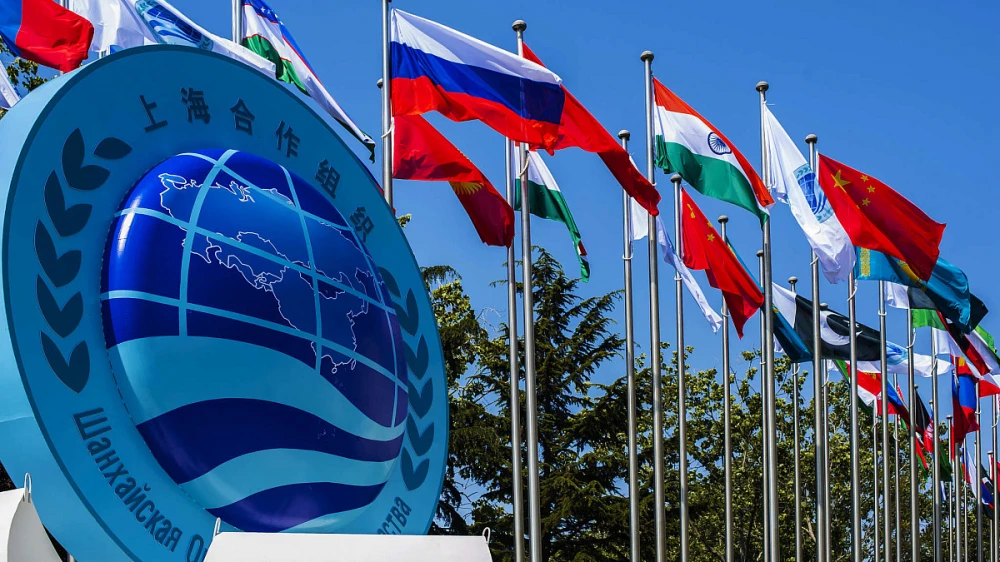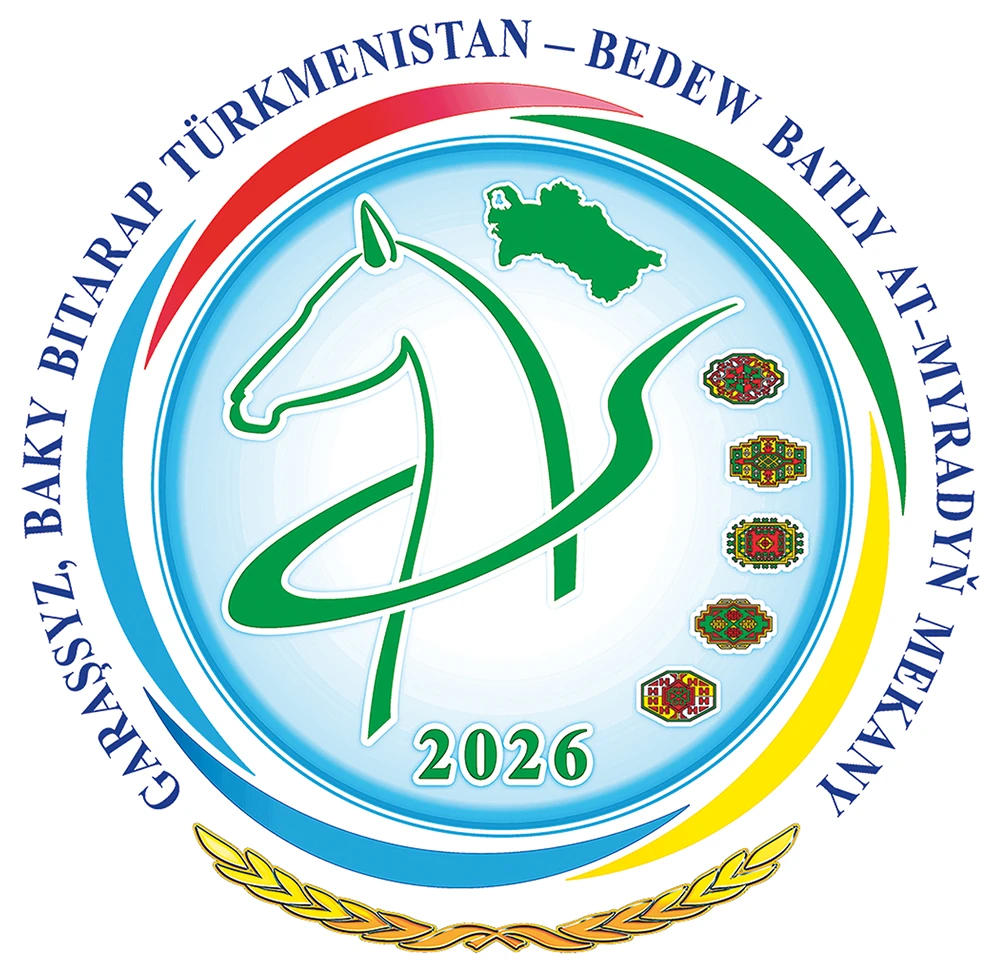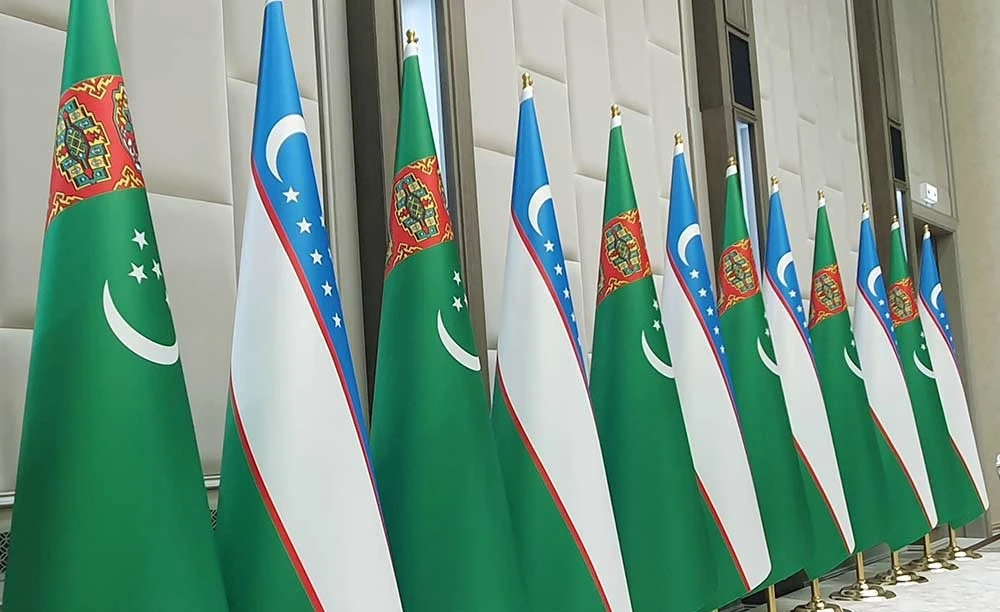
03/07/2024
1359
SHANGHAI COOPERATION ORGANIZATION: HISTORY OF SUMMITS AND ROLE IN REGIONAL SECURITY
The Shanghai Cooperation Organization (SCO) is a multilateral association founded in 2001 by the leaders of China, Russia, Kazakhstan, Tajikistan, Kyrgyzstan and Uzbekistan. The organization’s activities are aimed at ensuring security and maintaining stability in the vast Euro-Asian space, at jointly confronting new challenges and threats, and strengthening trade, economic, cultural and humanitarian cooperation.
The SCO is an intercivilizational organization that eliminates the possibility of a conflict of civilizations in the region of its responsibility by reinforcing mutually beneficial cooperation, preventing of confrontation and conflict, and maintaining equal and indivisible security. Moreover, the organization aims to build a just polycentric model of the world order that meets the interests of all and every state on the firm basis of the norms of international law and the principles of mutual respect and consideration of each other’s interests.
Adhering to the principles of openness, non-targeting and non-formation of alliances, the SCO actively and consistently develops dialogue, exchanges and cooperation. In addition, the SCO stands for strict observance of the purposes and principles of the UN Charter, primarily equality and sovereignty of states, non-interference in their internal affairs, mutual respect for territorial integrity, inviolability of borders, non-aggression, peaceful settlement of disputes non-use of force or threat of force, as well as other generally recognized norms of international law aimed at maintaining peace and security, the development of cooperation between States, the strengthening of independence, ensuring the right to determine their own destiny and the path of political, socio-economic and cultural development.
The twenty-fourth SCO Summit will be held on July 3-4, 2024 in Astana in the SCO+ format with the participation of heads of state and government of 16 countries. The event will be attended by the leaders of Belarus, Mongolia, Azerbaijan, Qatar, the UAE, Turkey and Turkmenistan as observers and dialogue partners. A number of international organizations will also be represented at a high level. The main agenda of the summit, which will be held under the motto “Strengthening multilateral dialogue: striving for sustainable peace and development”, will be the strengthening of the SCO’s role in solving urgent international and regional problems.
According to the data, the leaders intend to focus primarily on international trade and the economy to ensure stability. The summit will also discuss issues of regional security, infrastructure, energy, environment, health, tourism, education, digitalization, transport and logistics.
Following the summit, it is planned to adopt more than 20 documents in various fields, including the Astana Declaration, which will reflect the SCO’s position on current international and regional problems and promising research, as well as the SCO Development Strategy until 2035 and the SCO Energy Cooperation Development Strategy until 2030.
Moreover, a decision on Belarus’ full membership in the SCO is expected.
Brief history of summits of the Shanghai Cooperation Organization
According to the SCO, the organization currently consists of 9 member states, 3 states have observer status and 14 states are dialogue partners. Turkmenistan participates in the SCO summits as an honorary guest.
The first SCO summit was held on June 14-15, 2001 in Shanghai, following the summit, a Declaration on the establishment of the SCO was signed by the heads of six states of China, Russia, Kazakhstan, Kyrgyzstan, Tajikistan and Uzbekistan.
The second summit was held on June 7, 2002 in St. Petersburg, where the SCO Charter was adopted (entered into force on September 19, 2003) - the basic statutory document fixing the goals and principles of the Organization, its structure and main activities.
The third summit was held on May 28-29, 2003 in Moscow, where the SCO Secretariat with headquarters in Beijing and the Regional Anti-Terrorist Structure (RATS) were established. The heads of the participating countries touched upon the issues of combating terrorism and extremism. Among the 30 documents signed at that time were provisions defining the functioning of the organization’s organs — regulations on the Council of Heads of State, the Council of Heads of Government and the Council of Foreign Ministers. In addition, following the results of the Moscow summit, the SCO’s organizational period ended, and on January 1, 2004, it began to function as a full-fledged international structure with its own working mechanisms, personnel and budget.
The fourth summit, on June 17, 2004, a regular meeting of the SCO Council of Heads of State was held in Tashkent. By the decision of the Council of Heads of SCO member States, following the results of the Tashkent summit, the Regulation on observer status at the SCO was approved. Mongolia was the first country whose application for such a status was granted.
In addition, it is worth to note that on December 2, 2004, the United Nations General Assembly unanimously approved a resolution granting observer status to the Shanghai Cooperation Organization. SCO representatives took part in high-level UN meetings with regional organizations, and the Organization was represented at other UN events.
The fifth SCO Summit, held in Astana in 2005, in addition to a new package of treaties and conventions, a Declaration was signed by the heads of the member states of the Shanghai Cooperation Organization, which recorded further consolidation of efforts and strengthening of coordination. Also at the Astana summit, three states became SCO observer countries: India, Iran and Pakistan. It is worth noting that before the Astana summit, in April 2005, a Memorandum of Understanding was signed in Beijing between the SCO and CIS secretariats. A draft Memorandum of Understanding has been developed between the SCO and ASEAN secretariats. Working contacts are maintained with the OSCE, the CSTO and the OCAC.
The sixth summit of the SCO Heads of State was held on June 14-15, 2006 in Shanghai. During the summit, the heads of state put forward a program for the further development of the organization and signed a statement on international information security. At that time, Russia put forward an initiative to create the SCO Energy Club as a mechanism uniting producers, consumers and suppliers of energy resources, this idea was supported by the other heads of state.
The seventh SCO Summit was held on August 16, 2007 in Bishkek, where the heads of state signed the “Treaty on Long-term Good-Neighborliness, Friendship and Cooperation of the Shanghai Cooperation Organization member States” and the “Bishkek Declaration of the Heads of the Shanghai Cooperation Organization member States” following the summit.
The eighth SCO Summit was held on August 28, 2008 in Dushanbe, following which the Dushanbe Declaration was signed. Priority areas of development and cooperation within the SCO were considered, as well as international and regional issues were discussed. Moreover, an agreement on combating illicit trafficking in weapons, ammunition and explosives was signed, as well as a memorandum “On the foundations of partnership relations between the SCO Interbank Association and the Eurasian Development Bank”. Bilateral interbank agreements were also signed.
The ninth SCO Summit was held on June 15-16, 2009 in Yekaterinburg, the SCO leaders signed the Convention on Combating Terrorism, discussed issues of countering the international financial crisis and cooperation in the field of economics, trade and security. It was also decided to grant the status of a dialogue partner to Sri Lanka and Belarus.
The tenth SCO Summit was held on June 10-11, 2010 in Tashkent, during which the heads of state approved the Regulations on the procedure for admission of new members to the SCO. The SCO Heads of State also adopted a political declaration reflecting joint approaches to further development of cooperation within the organization, and approved a number of procedural documents and reports on the results of activities for 2009. In addition, intergovernmental agreements on cooperation in the field of agriculture and in the fight against crime were signed within the framework of the summit.
The eleventh SCO Summit was held on June 14-15, 2011 in the capital of Kazakhstan, the leaders of the organization adopted the Astana Declaration of the 10th anniversary of the SCO, approved the Anti-Drug Strategy for 2011-2016 and the action program for its implementation.
The twelfth SCO Summit was held on June 6-7, 2012. Following the summit, the heads of state signed a Declaration on building a region of long-term peace and shared prosperity, a program of cooperation in the fight against terrorism, separatism and extremism for 2013-2015. Moreover, Afghanistan has received observer status, and Turkey has become a dialogue partner.
The thirteenth SCO Summit was held on September 12-13, 2013 in Bishkek. The SCO heads of state advocated the achievement of peace and stability in the Middle East and North Africa and supported the initiative of the Russian Federation to transfer Syrian chemical weapons under international control. An agreement on scientific and technical cooperation was approved at the summit. The parties agreed to begin joint modernization of national economies, using the Development Fund and the Development Bank created within the framework of the organization, and to intensify the work of the SCO Energy Club.
The fourteenth SCO Summit was held on September 11-12, 2014 in Dushanbe. Following the summit, a number of documents were signed, including on the procedure for joining the organization of new members, a draft SCO Development Strategy until 2025, and an agreement on creating favorable conditions for international road transport. India and Pakistan have officially applied for membership in the SCO.
The fifteenth SCO Summit was held on July 9-10, 2015 in Ufa, during which the heads of state discussed issues of further development of the organization, key international and regional problems. Following the meeting, the parties approved the decision to begin the procedure for admitting India and Pakistan to membership in the Organization and signed a decision on granting Belarus observer status at the SCO. As a result of the summit, the Ufa Declaration and the Organization’s Development Strategy until 2025 were also approved. In addition, a program to combat terrorism, separatism and extremism for 2016-2018 has been approved.
The sixteenth SCO Summit was held on June 23-24, 2016 in Tashkent. Following the summit, the Tashkent Declaration was adopted in the capital of Uzbekistan, an Action Plan for 2016-2020 and a number of other documents were signed. The SCO leaders discussed concrete steps to improve the organization’s activities and develop cooperation among its member states in priority areas such as security, counterterrorism, economy and humanitarian ties. At the Tashkent summit, memoranda of obligations between the Republic of India and the Islamic Republic of Pakistan were signed in order to obtain the status of SCO member states.
The seventeenth SCO Summit was held on June 8-9, 2017 in Astana. Following the meeting of the Council of Heads of State, the Astana Declaration was adopted, which reflects the main approaches to the further development of practical cooperation and expresses a common desire to make maximum efforts to expand and deepen multilateral cooperation. Moreover, the heads of State decided to grant India and Pakistan full membership in the Organization.
The eighteenth SCO Summit was held on June 9-10, 2018 in Qingdao. The summit became an unprecedented, “milestone” event in its significance not only for the further development of the SCO, but also for the entire world community. The summit opened a new format for the Council’s work: for the first time it was held as part of the leaders of the eight Member States of the Organization. As a result of the summit, a total of 23 documents were adopted, including 17 directly by the heads of state. The main political document of the summit was the Qingdao Declaration of the Council of Heads of SCO Member States, which reflects the consolidated approaches of the member states on topical issues of regional and global policy, as well as presents a common vision for the further development of multifaceted cooperation within the framework of the association.
The nineteenth SCO Summit was held on June 13-14, 2019 in Bishkek. As a result of the summit, the Bishkek Declaration was adopted. 22 documents have been signed aimed at developing partnership between the participating countries in various fields, as well as cooperation between the SCO and other international structures. Moreover, the Concept of Cooperation in the field of digitalization and information and communication technologies and the Program for the Development of Interregional Cooperation of the SCO member states have been approved.
The twentieth SCO summit was held on November 10, 2020 in the format of a videoconference. Following the summit, the Moscow Declaration of the Council of Heads of State of the Shanghai Cooperation Organization was adopted. The Action Plan for 2021-2025 for the implementation of the SCO Development Strategy until 2025, the Concept of Cooperation between the SCO member states on the development of remote and rural areas in the digital Age, and a comprehensive plan of joint measures by the SCO member states to counter the threats of epidemics in the region were approved.
The twenty-first anniversary summit, held in Dushanbe on September 16-17, 2021, became a historic event, as evidenced by the signed solid package of documents, which for the first time in the history of the SCO reached thirty, including agreements in favor of expanding the SCO family. The main document adopted at the end of the summit was the Dushanbe Declaration of the twentieth anniversary of the SCO, which reflected the main results of the Organization's twenty years of activity, the common position of our countries on key issues of regional and global policy. The Heads of State approved the Program of Cooperation of the SCO member States in Countering Terrorism, separatism and Extremism for 2022-2024, the Work Plan (2021-2023) for the implementation of the points of the Action Program for the Implementation of the Anti-Drug Strategy of the SCO member States for 2018-2023 and the Plan of Interaction of the SCO member states on International information security for 2022-2023. A plan of joint measures to overcome the negative socio-economic consequences of the COVID-19 pandemic, the Concept of the SCO Economic Forum, the SCO Green Belt Program, and a Statement on food security were approved. Moreover, following the results of the summit, the Islamic Republic of Iran received the right to begin the process of joining the SCO as a full member.
The twenty-second SCO Summit was held on September 15-16, 2022 in Samarkand. The main final document was the Samarkand Declaration of the Council of Heads of SCO member States. During the summit, the decision to admit 6 new dialogue partners to the organization was encouraged, and 4 of them are Arab countries. Along with this, it was decided to start the procedure for admission to the SCO of Belarus. About 40 documents were signed at the Samarkand summit, including a comprehensive plan for the implementation of the treaty on long-term good-neighborliness, friendship and cooperation. In addition, a concept of cooperation on the development of interconnectedness and the creation of efficient transport corridors, a program to stimulate industrial cooperation, and a provision on the honorary title of “SCO Goodwill Ambassador” were signed.
The twenty-third SCO Summit was held on July 4, 2023 in the format of a videoconference chaired by the Indian side. The central place on the agenda of the New Delhi summit was occupied by issues of the state and prospects for the development of multilateral cooperation across the entire spectrum of SCO activities, in particular, in the field of politics and security, trade and investment, transport and energy, culture and humanitarian exchanges. 14 joint documents were signed, in particular, the New Delhi Declaration, a Statement on countering Radicalization leading to Terrorism, Separatism and Extremism, a Statement on cooperation in the field of digital transformation, and a number of decisions on certain aspects of the Organization’s activities. One of the key outcomes of the summit was the completion of the procedure for the Islamic Republic of Iran’s accession to the Organization as a Member State. Thus, the SCO membership has increased to nine states.
To summarize, it is worth noting that the organization was originally called. The Shanghai Five, but in 2001, after Uzbekistan joined, it was renamed the Shanghai Cooperation Organization. As noted above, India and Pakistan joined the organization in 2017 and later Iran in 2023. According to the data, currently the observer countries in the SCO are Belarus, Mongolia and Afghanistan, the dialogue partners are Turkey, Azerbaijan, Egypt, Saudi Arabia, the United Arab Emirates, Bahrain, Qatar, Armenia, Cambodia, Kuwait, Maldives, Myanmar, Nepal and Sri Lanka.
Rahym AKMURADOV,
lecturer of the Institute of International Relations
of the
Ministry of Foreign Affairs of Turkmenistan.


